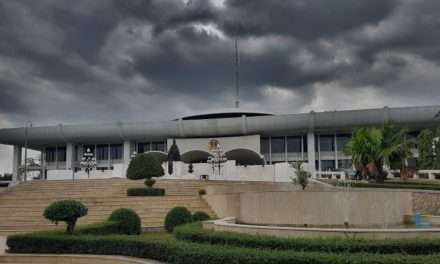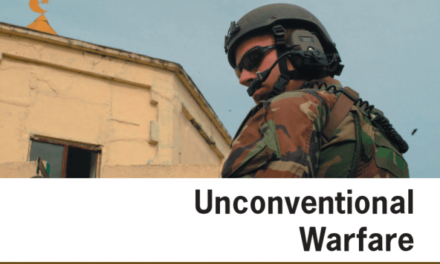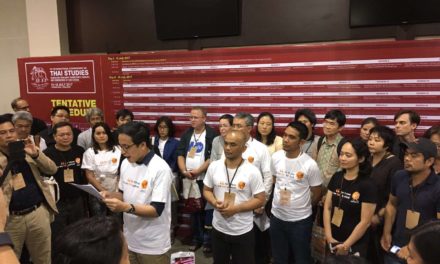By Walden Bello*
BEIRUT, Lebanon – (6:17 am, Monday, August 14. I got awakened a few minutes ago by two massive blasts. They sounded very close, but they were probably coming from South Beirut. I am in Central Beirut. With the ceasefire due to take effect in less than an hour, the Israelis are bombing up till the last minute. These guys are unbelievable. Then I remember I have to file a story on what happened the day before, August 13.)
“We could have been there,” Rep. Mujiv Hataman of Mindanao remarks quietly after it is confirmed that the blasts we heard just moments before were those of Israeli shells falling on the Shia neighborhoods in South Beirut that we visited just two hours ago.
The images of flattened buildings and still smoldering ruins and crushed, dust-covered cars are still fresh in our minds. I also remember the teddy bear, the child stroller, and the books I saw as I clambered over the ruins of a 12-story building at the neighborhood of Haret Hreik.”
“The Most Dangerous Day”
“Today is the most dangerous day in this war,” the restaurant manager tells us as the delegation sits down for lunch thankful for our good luck but also very angry at the Israelis. “They know that people will let down their guard now that a ceasefire has been agreed to. But they want to make things uncertain for us until the very last minute.”
Nahla Chahal, the Lebanese activist coordinating the visit of our 12-person Civil Society-Parliamentary Delegation, agrees: “They can’t accept the fact that they’ve not been able to beat Hezbollah, so they’ll terrorize the civilian population till the very end.”
After walking though the ruins of South Beirut earlier in the day, we move on to Beirut University General Hospital. We briefly visit Firas Chahal, a 27 year old man suffering internal and external wounds after being thrown out of a minibus when an Israeli jet bombed the bridge at the Casino du Liban that we had to take a detour around on the way to Beirut. Confined at a nearby room is Khaleek Mahmoud, a 68 year old grandmother whose legs were shattered after the roof of her house collapsed on her when Israeli warplanes pounded her village in South Lebanon. “Israel is a tyrannical state,” she tells us. “”You should go down there and see for yourselves.”
Children of War
After visiting the hospital, we hurry to the Ecole El Ghoul in downtown Beirut, which serves as temporary quarters for 355 people from 66 families from the South. One million Lebanese have been displaced by the war, so the conditions of the people we meet are typical of those of a full third of the country. “The integration of the refugees into old neighborhoods brings its share of problems,” says Nahla Chahal. “The Hezbollah, however, is trying its best to provide the social services to support the people in this school.”
Children and adolescents fill the courtyard and greet our delegation with glee, taking advantage of every photo opportunity. For a few moments, confronted by this sea of smiles, the war seems far away. The younger ones readily break out into cheers when Vijaya Chauhan, one of our delegation members who has worked with women and children in India, waves and talks to them. Then they break out into a chant that invokes the name of Hezbollah leader Hassan Nasrallah that translates roughly into “Nasrallah, we’re with you/ You can bomb Tel Aviv.”
A Stoic People
After the lunch disrupted by the sound of Israeli bombs falling in South Beirut, we spend most of the afternoon with Lebanese NGOs assessing the scale of the humanitarian and ecological disaster and looking ahead to post-cease fire cooperation. Two massive blasts interrupt our discussion, but our Lebanese hosts continue talking, assuring us that the sounds came from Israeli Navy boats shelling South Beirut a few miles away.
At dinner at a restaurant later that evening, the sound of explosions in South Beirut does not deter people at a nearby table from continuing to carouse loudly. The Israelis are bombing up till the last minute to terrorize the Lebanese. It’s not working. These people are very angry, but they’re used to war and are not about to let it get in the way of living their lives. These are brave, stoic people.
*Walden Bello is professor of sociology at the University of the Philippines and executive director of Focus on the Global South, a research and advocacy institute based in Bangkok, Thailand. He is in Beirut as part of an international civil society-parliamentary peace mission.





![[IN PHOTOS] In Defense of Human Rights and Dignity Movement (iDEFEND) Mobilization on the fourth State of the Nation Address (SONA) of Ferdinand Marcos, Jr.](https://focusweb.org/wp-content/uploads/2025/07/1-150x150.jpg)



